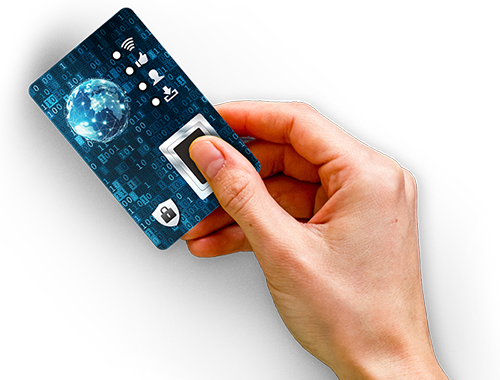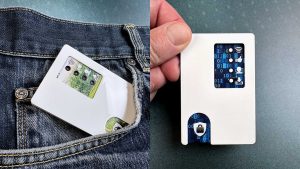Controlled face-to-face enrollment and secure operational handling verifying trusted identities and sustained card integrity.
Introduction
High-security biometric devices require rigorous lifecycle management from manufacturing to operation. The APPSCARD platform implements “passport-grade” processes that ensure integrity at every step—from production to enrollment and activation.
Card Production
During manufacturing, card components are assembled in a secure facility, where fingerprint sensors are calibrated and encapsulated in rigid housings. The secure element (SE) and firmware are loaded and tested under strict confidentiality. BSoC applets are installed using a Hardware Security Module (HSM) following GlobalPlatform standards, ensuring that cryptographic keys and configurations remain protected.
Personalization
Personalization links each card to its legitimate holder through unique identifiers and credentials written into the SE. Physical and logical personalization is performed by authenticated officers before handover. KYC procedures verify the individual’s identity face-to-face using official documents, preventing fraudulent onboarding.
Enrollment
Enrollment, conducted under supervision, registers the user’s fingerprints directly on the card. The process involves guided presentation of multiple fingers, live feedback on quality, and test verification before activation. The biometric reference data remains securely within the card for its entire lifespan, ensuring exclusive usability by the legitimate owner. Difficult or low-quality users are identified and managed with fallback methods such as future on-card face recognition.
To prevent insider corruption or human error, APPSCARD recommends that officers performing KYC and enrollment authenticate themselves biometrically with their own cards—creating a verifiable audit trail. Such accountability greatly reduces risks of coercion, negligence, or fraud.
Export or import of standardized biometric data (ISO/IEC 19794-2) is possible only with administrative rights and secure deletion policies for de-duplication scenarios.
Summary
In conclusion, APPSCARD’s trusted KYC and enrollment model guarantees that every issued Biometric System-on-Card is genuine, personalized, and securely linked to one individual. Supervised enrollment ensures quality, reliability, and full lifecycle integrity—far beyond what self-enrollment payment cards can deliver.





